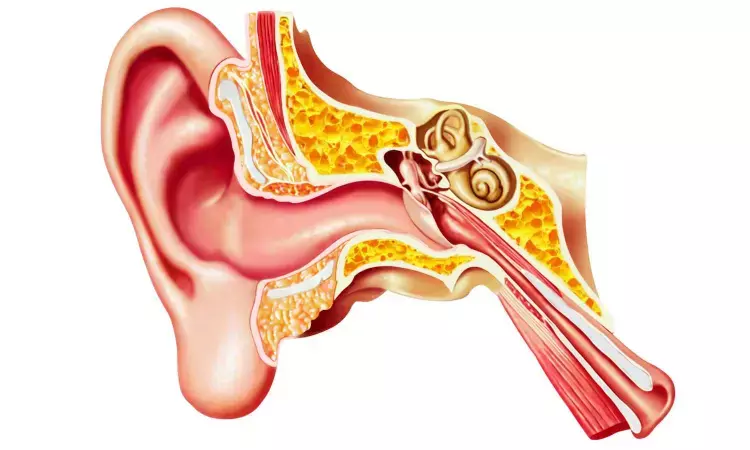- Home
- Medical news & Guidelines
- Anesthesiology
- Cardiology and CTVS
- Critical Care
- Dentistry
- Dermatology
- Diabetes and Endocrinology
- ENT
- Gastroenterology
- Medicine
- Nephrology
- Neurology
- Obstretics-Gynaecology
- Oncology
- Ophthalmology
- Orthopaedics
- Pediatrics-Neonatology
- Psychiatry
- Pulmonology
- Radiology
- Surgery
- Urology
- Laboratory Medicine
- Diet
- Nursing
- Paramedical
- Physiotherapy
- Health news
- Fact Check
- Bone Health Fact Check
- Brain Health Fact Check
- Cancer Related Fact Check
- Child Care Fact Check
- Dental and oral health fact check
- Diabetes and metabolic health fact check
- Diet and Nutrition Fact Check
- Eye and ENT Care Fact Check
- Fitness fact check
- Gut health fact check
- Heart health fact check
- Kidney health fact check
- Medical education fact check
- Men's health fact check
- Respiratory fact check
- Skin and hair care fact check
- Vaccine and Immunization fact check
- Women's health fact check
- AYUSH
- State News
- Andaman and Nicobar Islands
- Andhra Pradesh
- Arunachal Pradesh
- Assam
- Bihar
- Chandigarh
- Chattisgarh
- Dadra and Nagar Haveli
- Daman and Diu
- Delhi
- Goa
- Gujarat
- Haryana
- Himachal Pradesh
- Jammu & Kashmir
- Jharkhand
- Karnataka
- Kerala
- Ladakh
- Lakshadweep
- Madhya Pradesh
- Maharashtra
- Manipur
- Meghalaya
- Mizoram
- Nagaland
- Odisha
- Puducherry
- Punjab
- Rajasthan
- Sikkim
- Tamil Nadu
- Telangana
- Tripura
- Uttar Pradesh
- Uttrakhand
- West Bengal
- Medical Education
- Industry
Vestibular Neurectomy Proves Highly Effective for Severe Meniere's Disease, unravels study

Researchers have found in a recent study that vestibular neurectomy is highly effective for people with severe Meniere's disease when no relief is observed from prior conservative treatments. The prognosis associated with Meniere's disease, which has a threatening nature of vertigo attacks, associated hearing loss, tinnitus, and sensation of fullness in the ear can reduce the quality of a patient's life. The study investigates the changes in outcome functional balance and compensation of balance in patients with vestibular neurectomy. This was published by Agnieszka J. in the Journal of Clinical Medicine.
In this study there were 20 unilateral Meniere's patients who underwent vestibular neurectomy. Evaluations before and two years after the surgery were done in order to detect the outcome of the treatment applied. The evaluation consisted of subjective grading according to the American Academy Otolaryngology-Head and Neck Surgery's scale and Dizziness Handicap Inventory (DHI). Also, the Sensory Organization Test (SOT) was applied to the sensory interaction portion of the balance system before and after surgery.
Key Findings
• All 20 patients (100%) reported complete resolution of vertigo attacks following vestibular neurectomy.
• According to the American Academy of Otolaryngology-Head and Neck Surgery’s grading scale, 95% of patients reported a significant improvement in their functional level. The average score decreased from 4.5 preoperatively to 1.6 postoperatively.
• Scores on the DHI, which should be representative of overall impacts of dizziness on daily activities, improved dramatically.
• The mean score reduced from 81.7 in the pre-surgery phase to 16.4 in the post-surgery phase thus indicating the significant drop in the handicap by dizziness.
• The results of the Sensory Organization Test did not change statistically significantly before and after surgery, suggesting that, while the vertigo was resolved, overall functioning of the balance system remained stable.
• The research also showed there were significant correlations between patient age and the postoperative results based on the DHI and posturography tests, thus indicating that age may have an influence on how much recovery and adaptation is expected to be derived from surgery.
These results emphasize the overall efficacy of vestibular neurectomy for treating severe Meniere's disease, particularly in all patients who have otherwise failed conservative management. Surgery did not merely abolish vertigo attacks but also evidenced significant gains in functional and emotional well-being with a steep decline in DHI scores. Generally, most of the patients returned back to daily activities and work, which signifies the restorative potential of the procedure in regard to quality of life.
On the other hand, this study stressed that careful selection of the patient and rigorous pre-operative evaluation are very essential. One has to know the general status of health, age, and particular characteristics of Meniere's disease in order to achieve optimal surgical outcomes. Little changes within the Sensory Organization Test may indicate that, on the one hand, vestibular neurectomy is an efficient treatment in the control of vertigo, but on the other hand, it does not drastically change the functioning of the balance system, which remains dependent on individual compensatory mechanisms.
This study concludes that vestibular neurectomy is a highly effective surgical option for patients with severe Meniere’s disease who do not respond to conservative management. The procedure provides substantial relief from vertigo, improves physical and emotional well-being, and allows patients to regain their daily functions. These findings support the role of vestibular neurectomy as a valuable intervention in the management of Meniere’s disease.
Reference:
Jasińska-Nowacka, A., Lachowska, M., & Niemczyk, K. (2024). Functional level and dynamic posturography results two years after vestibular neurectomy in patients with severe Meniere’s disease. Journal of Clinical Medicine, 13(12), 3362. https://doi.org/10.3390/jcm13123362
Dr Riya Dave has completed dentistry from Gujarat University in 2022. She is a dentist and accomplished medical and scientific writer known for her commitment to bridging the gap between clinical expertise and accessible healthcare information. She has been actively involved in writing blogs related to health and wellness.
Dr Kamal Kant Kohli-MBBS, DTCD- a chest specialist with more than 30 years of practice and a flair for writing clinical articles, Dr Kamal Kant Kohli joined Medical Dialogues as a Chief Editor of Medical News. Besides writing articles, as an editor, he proofreads and verifies all the medical content published on Medical Dialogues including those coming from journals, studies,medical conferences,guidelines etc. Email: drkohli@medicaldialogues.in. Contact no. 011-43720751


